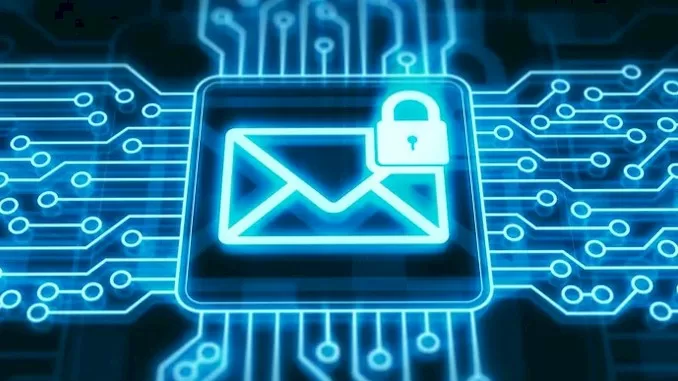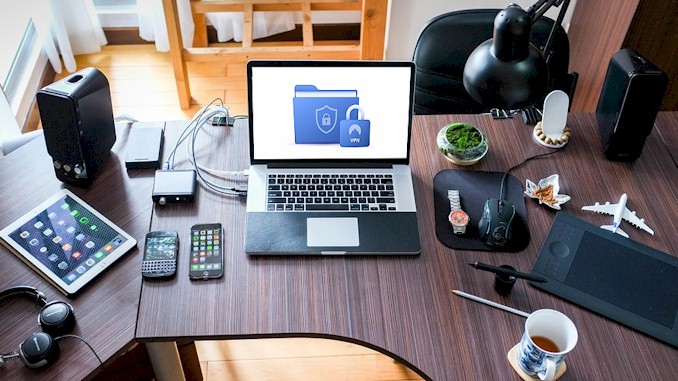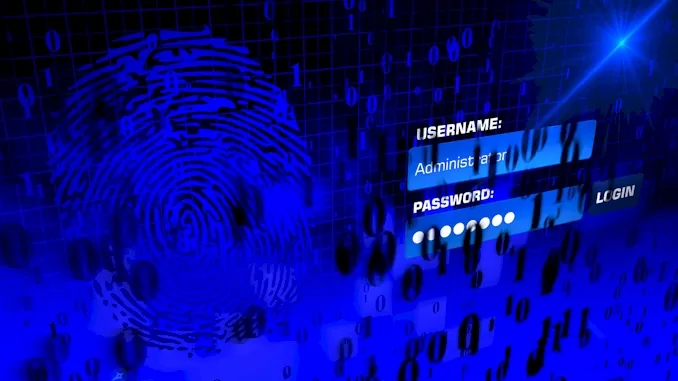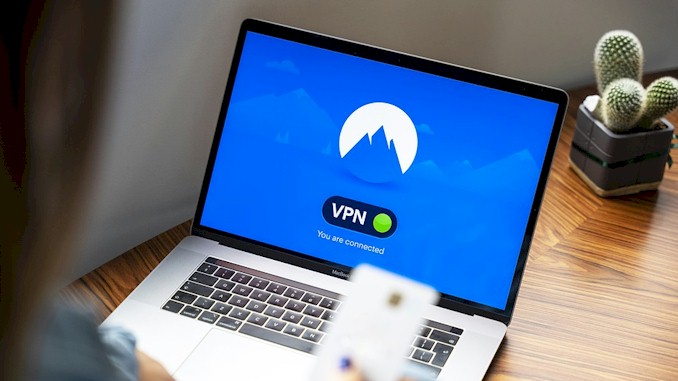Unveiling Privacy Cracks: Proton Mail Surrenders Data to Authorities
As an experienced cybersecurity professional, I understand the critical importance of maintaining privacy in our digital communications. Recently, Proton Mail, a service known for its commitment to secure and private email, has again made headlines by handing over personal information to law enforcement. If you are concerned about what this means for your privacy and how to safeguard your online interactions, I have something to share with you. You’ll find out what happened, why it matters, and easy tips to keep your personal info safe.
Understanding the Incident: What Happened with Proton Mail?
In a recent turn of events, Proton Mail, a service renowned for its commitment to user privacy, has once again handed over user information to law enforcement authorities, sparking significant concern among privacy advocates and users alike. This incident raises pressing questions about the reliability of services that promise anonymity and security. To really understand how serious this is, we need to look closely at what happened and see the bigger picture.
The latest incident involves Proton Mail providing account recovery email address information to Spanish police, who were investigating a suspect believed to be supporting Catalonian separatists. The Spanish authorities then shared this recovery address with Apple, which was able to identify the individual associated with the account. These events show the complex ties between global police forces and the tough spot privacy services are in with the law.
This is not the first time Proton Mail has been compelled to share user information. In 2021, the Switzerland-based vendor provided Swiss police with the IP address and device details of a French climate activist. This information was later shared with French police, leading to the activist’s arrest. Proton Mail’s transparency report reveals that the company received over 3,500 requests for user data in the past year alone, with a compliance rate of approximately 40%. These incidents emphasize the potential vulnerability of user data even with services that are designed to prioritize privacy.
The reasoning behind Proton Mail’s compliance lies in the intricacies of international law enforcement collaboration and Swiss regulations. Proton Mail is subject to Swiss jurisdiction, which enforces strict privacy laws but also mandates cooperation with legitimate legal requests from international bodies. As Proton Mail stated in their official blog, “Proton Mail is obligated to comply with the laws of Switzerland, which are amongst the strictest privacy laws in the world, but it also means that we must abide by the court orders from Swiss authorities when they are legally binding.”
One of the nuances of these incidents is the distinction between email content and metadata. While Proton Mail’s end-to-end encryption ensures that the content of emails remains inaccessible to the company and anyone else without the decryption keys, metadata—such as IP addresses, device information, and recovery email addresses—can still be logged and handed over if required by law. This highlights a critical point: while encryption can protect the content of communications, it does not always shield users from other forms of data tracking.
A story that helps us understand how people felt is about a French activist who thought their Proton Mail was private. In 2021, they found out their private details were given to the police, which made many people upset and started a big talk about privacy today.
These incidents with Proton Mail underscore the complex interplay between legal obligations and privacy promises. They serve as a reminder that while privacy-focused services can offer significant protections, they are not immune to legal constraints. Users need to be aware of these limitations and consider additional measures to protect their anonymity and data security.
The Legal Landscape: Why Proton Mail Had to Comply
Understanding why Proton Mail had to comply with law enforcement requests involves delving into the complex legal landscape that governs data privacy and international cooperation. Proton Mail operates under Swiss jurisdiction, a country renowned for its stringent privacy laws. However, these same laws also mandate compliance with legitimate legal requests from foreign authorities, provided they adhere to specific protocols. This duality of stringent privacy protection and legal obligation forms the crux of Proton Mail’s predicament.
Swiss data protection laws are among the most robust in the world, offering extensive privacy rights to individuals. Under the Swiss Federal Act on Data Protection (FADP), personal data is highly safeguarded, and users have substantial control over their information. However, Swiss law also includes provisions under the Mutual Legal Assistance Treaty (MLAT), which facilitates international cooperation in criminal matters. Through MLAT, foreign law enforcement agencies can request user data from Swiss companies, including Proton Mail, provided they follow due legal process.
| Swiss Data Protection Features | Mutual Legal Assistance Treaty (MLAT) Obligations |
|---|---|
| Strict user data protection | Requires compliance with foreign legal requests |
| High level of privacy rights | Facilitates international law enforcement cooperation |
| Detailed regulations on data use | Legal requests must adhere to Swiss legal standards |
Proton Mail’s compliance in the recent cases was driven by legally binding orders under MLAT. For instance, in the 2021 case involving the French climate activist, Swiss authorities, upon receiving a lawful request from French police via Europol, directed Proton Mail to provide the IP address and device details. Similarly, the recent case with the Catalonian separatist supporter involved a lawful request channeled through Spanish police, who adhered to the legal protocols required by Swiss law.
As Proton Mail explained in their transparency report, “When we receive a legally binding order from Swiss authorities, we must comply with it, just as any other company operating in Switzerland must do.” This compliance is not unique to Proton Mail; it applies to all companies operating under Swiss jurisdiction, reflecting the balance between individual privacy rights and broader law enforcement needs.
The legal obligations under MLAT require Proton Mail to provide specific types of user data, typically metadata, which includes IP addresses, device information, and recovery email addresses. It is important to note that Proton Mail’s end-to-end encryption ensures that email content remains secure and inaccessible to anyone without the decryption keys. However, metadata, which can be crucial in investigations, is not similarly protected under Swiss law when a legal request is made.
Here’s a breakdown of the data types Proton Mail might be required to hand over under a legal request:
- IP Addresses: Identifies the user’s location and internet service provider.
- Device Information: Details about the device used to access Proton Mail services.
- Recovery Email Addresses: Used to identify linked accounts or alternative contact information.
- Metadata: Includes email timestamps and recipient addresses, excluding email content.
An illustrative quote from Andy Yen, CEO of Proton Mail, sheds light on the company’s stance: “While Proton Mail is committed to protecting the privacy of its users, we are also bound by the legal framework within which we operate. Compliance with legitimate legal requests is a legal necessity and part of our obligation under Swiss law.”
As you have learned, the legal landscape that Proton Mail navigates is marked by a delicate balance between upholding user privacy and fulfilling legal obligations under international treaties like MLAT. This balance is essential to understanding why Proton Mail had to comply with law enforcement requests, despite their strong commitment to privacy.
Implications for Your Privacy: What This Means to You
The recent incidents involving Proton Mail handing over user information to law enforcement have significant implications for user privacy. These events highlight critical points about the limits of privacy even with services that prioritize security. Understanding these implications can help you make informed decisions about your digital communications and take additional steps to protect your privacy.
One of the primary implications is the realization that metadata can be as revealing as the content of your emails. While Proton Mail’s end-to-end encryption ensures that the actual content of your emails remains private and inaccessible without the decryption keys, metadata—such as IP addresses, device information, and recovery email addresses—can still be tracked and handed over to authorities if required by law. This metadata can reveal patterns about your online activities, your location, and your communication habits, which can be pieced together to build a detailed profile of you.
| Data Type | Privacy Protection | Potential for Exposure |
|---|---|---|
| Email Content | End-to-End Encryption | Highly Secure |
| IP Addresses | Not Encrypted | Exposed under legal request |
| Device Information | Not Encrypted | Exposed under legal request |
| Recovery Email | Not Encrypted | Exposed under legal request |
| Metadata | Not Encrypted | Exposed under legal request |
Another critical implication is the importance of understanding the jurisdiction and legal environment in which your email provider operates. As illustrated by Proton Mail’s situation, even the most privacy-focused services are bound by the laws of the country they are based in. In Proton Mail’s case, Swiss law offers robust privacy protections but also requires compliance with international law enforcement requests through the Mutual Legal Assistance Treaty (MLAT). Users should be aware of these legal frameworks and consider them when choosing an email service provider.
The idea that even private services might have to give out user info could make people think differently about how they keep their online lives private. For example, activists, journalists, and other high-risk users might need to take extra precautions, such as using additional layers of anonymization like VPNs or Tor networks to mask their IP addresses. Additionally, choosing services that minimize data logging or offer stronger metadata protection might be necessary for those seeking enhanced privacy.
| User Type | Additional Privacy Measures |
|---|---|
| General Users | Use VPNs, enable two-factor authentication |
| Activists/Journalists | Use VPN+Tor, employ encrypted messaging apps |
| High-Risk Individuals | Avoid linking recovery emails, use burner devices |
Quotes from privacy experts further underline the significance of these implications. For instance, Edward Snowden has often emphasized, “Metadata can tell your story just as well as the content of your communications.” This perspective reinforces the need for users to understand the depth of what metadata can reveal about their activities.
To mitigate these privacy risks, you can adopt several practices:
- Regularly reviewing and updating security settings, using strong and unique passwords;
- Being cautious about the information linked to your accounts can help enhance your privacy;
- Additionally, staying informed about the privacy policies and legal obligations of your service providers is crucial for maintaining a secure online presence.
Proton Mail giving info to the police affects more than just the current situation. It reminds us that even services that focus on privacy have their limits and why it’s important to actively protect our online privacy. When you understand these limitations and begin to take additional protective measures, you can better protect your sensitive information in an increasingly surveilled digital landscape.
How to Protect Your Digital Communications: Practical Tips
In light of the recent incidents involving Proton Mail, it is crucial to explore practical steps to enhance the security and privacy of your digital communications. While no system can offer absolute protection, following these guidelines can significantly reduce the risks and help maintain your online privacy.
Use Strong, Unique Passwords and Enable Two-Factor Authentication
Creating strong, unique passwords for each of your accounts is one of the most effective ways to protect your digital communications. A strong password typically includes a combination of upper and lower case letters, numbers, and special characters. Avoid using easily guessable information like birthdays or common words. To manage multiple strong passwords, consider using a password manager, which can securely store and generate passwords.
Additionally, enabling two-factor authentication (2FA) adds an extra layer of security. With 2FA, even if your password is compromised, an attacker would still need access to your second factor (such as a text message code or authentication app) to gain entry to your account.
| Security Measure | Benefit |
|---|---|
| Strong, Unique Passwords | Reduces risk of account compromise |
| Two-Factor Authentication | Adds an extra layer of security |
| Password Manager | Safely stores and generates strong passwords |
Use End-to-End Encrypted Services
Whenever possible, use services that offer end-to-end encryption (E2EE) to ensure that only you and the intended recipient can read the content of your communications. E2EE ensures that even the service provider cannot access the content of your messages. For emails, besides Proton Mail, consider services like Tutanota. For messaging, apps like Signal and WhatsApp provide robust end-to-end encryption.
| Service Type | Recommended Options |
|---|---|
| Proton Mail, Tutanota | |
| Messaging | Signal, WhatsApp |
Employ Anonymization Tools
To protect your identity and metadata, consider using anonymization tools such as Virtual Private Networks (VPNs) and Tor. A VPN encrypts your internet connection and masks your IP address, making it harder for third parties to track your online activities. Tor routes your internet traffic through multiple servers, concealing your location and usage patterns. These tools are particularly useful for high-risk users like journalists and activists who need to maintain anonymity.
| Anonymization Tool | Purpose |
|---|---|
| VPN | Encrypts connection, masks IP address |
| Tor | Routes traffic through multiple servers to conceal location |
Minimize Metadata Exposure
Be mindful of the metadata that can be exposed during digital communications. Avoid linking recovery email addresses or phone numbers to your primary accounts when possible. Use disposable or burner email addresses for sign-ups and recovery options to minimize the traceable links to your primary identity. Regularly review the privacy settings of your accounts and limit the amount of personal information shared.
| Metadata Protection Measure | Description |
|---|---|
| Disposable Email Addresses | Use for sign-ups and account recovery |
| Privacy Settings Review | Regularly update and limit shared information |
Stay Informed About Legal and Privacy Policies
Understanding the legal frameworks and privacy policies of your service providers is essential. Regularly review the terms of service and privacy policies to stay informed about how your data is handled and under what circumstances it can be shared with authorities. Choose providers based on their commitment to privacy and their transparency in reporting legal requests.
An illustrative quote from cybersecurity expert Bruce Schneier emphasizes this point: “Surveillance is the business model of the internet.” This underscores the importance of being vigilant and informed about how your data is collected and used.
In summary, protecting your digital communications involves a combination of strong passwords, encryption, anonymization tools, careful management of metadata, and staying informed about privacy policies. By adopting these practical tips, you can significantly enhance your online security and privacy, reducing the risk of exposure in an increasingly monitored digital world.
Alternative Secure Email Services: Exploring Your Options
After you read all these ugly things about the providers who claim to provide security and privacy to their customers but have betrayed you at last, It would be better to have some options in your hands. So you could switch to another one for your email security and privacy. Here, I list some important information about the features, strengths, and limitations of the different main players in this field to help you choose the best option for your privacy needs.
Tutanota
Tutanota is a German-based secure email service that offers end-to-end encryption for all emails and contacts. Unlike Proton Mail, Tutanota also encrypts metadata, which includes the subject line, sender, and recipient information, providing an added layer of privacy. Tutanota uses its own encryption protocols and does not rely on PGP, which has been criticized for being outdated. The service offers both free and paid plans, with paid plans providing additional storage and premium features.
| Feature | Tutanota |
|---|---|
| Encryption | End-to-End (including metadata) |
| Location | Germany (strict privacy laws) |
| Free Plan | Yes |
| Premium Features | Additional storage, custom domains |
| Unique Selling Point | Metadata encryption, easy-to-use interface |
Mailfence
Mailfence, based in Belgium, is another robust alternative that offers end-to-end encryption using OpenPGP. In addition to secure email, Mailfence provides a comprehensive suite of tools including calendar, contacts, and document storage. Belgium’s strong privacy laws provide a favorable legal environment for protecting user data. Mailfence’s emphasis on interoperability with other OpenPGP services makes it a flexible option for users who need secure communication across different platforms.
| Feature | Mailfence |
|---|---|
| Encryption | End-to-End (OpenPGP) |
| Location | Belgium (strong privacy laws) |
| Free Plan | Limited free plan |
| Premium Features | Enhanced storage, document management |
| Unique Selling Point | Full suite of tools (calendar, contacts, docs) |
CounterMail
CounterMail offers a unique approach to secure email with its focus on security and anonymity. Based in Sweden, CounterMail uses strong encryption protocols and provides features such as anonymous email headers and diskless web servers to prevent data leakage. The service is designed for users who need maximum security and are willing to pay for it, as there is no free plan available. CounterMail also supports USB key two-factor authentication for added security.
| Feature | CounterMail |
|---|---|
| Encryption | End-to-End (OpenPGP) |
| Location | Sweden (strong privacy laws) |
| Free Plan | No |
| Premium Features | USB key 2FA, anonymous headers, diskless servers |
| Unique Selling Point | Maximum security features, focus on anonymity |
StartMail
StartMail, based in the Netherlands, offers a user-friendly secure email solution that integrates end-to-end encryption with OpenPGP. StartMail emphasizes privacy and does not store email metadata. One of its standout features is the ability to create disposable email addresses, which is useful for minimizing spam and enhancing privacy. StartMail is a paid service, reflecting its commitment to not relying on ad revenue and data mining.
| Feature | StartMail |
|---|---|
| Encryption | End-to-End (OpenPGP) |
| Location | Netherlands (strong privacy laws) |
| Free Plan | No |
| Premium Features | Disposable email addresses, custom domains |
| Unique Selling Point | User-friendly, metadata-free email storage |
Hushmail
Hushmail is a longstanding player in the secure email market, offering a blend of convenience and security. Based in Canada, Hushmail provides end-to-end encryption for email content and supports HIPAA compliance, making it a suitable choice for healthcare professionals. The service offers both personal and business plans, with features tailored to different needs, including encrypted web forms and secure file storage.
| Feature | Hushmail |
|---|---|
| Encryption | End-to-End (OpenPGP) |
| Location | Canada (compliant with PIPEDA) |
| Free Plan | Limited |
| Premium Features | HIPAA compliance, secure web forms |
| Unique Selling Point | Healthcare-specific features, long-established |
Comparison Table
| Service | Location | Encryption | Free Plan | Unique Features |
|---|---|---|---|---|
| Tutanota | Germany | E2EE (metadata) | Yes | Metadata encryption, easy-to-use interface |
| Mailfence | Belgium | E2EE (OpenPGP) | Limited | Full suite of tools |
| CounterMail | Sweden | E2EE (OpenPGP) | No | Anonymous headers, diskless servers |
| StartMail | Netherlands | E2EE (OpenPGP) | No | Disposable email addresses |
| Hushmail | Canada | E2EE (OpenPGP) | Limited | HIPAA compliance, healthcare features |
As you see, exploring alternative secure email services involves evaluating factors such as encryption protocols, jurisdiction, unique features, and pricing. When you understanding these aspects, you can choose the service that best aligns with your privacy needs and usage preferences. Whether you prioritize metadata encryption, interoperability with other secure services, or specific legal protections, there is likely an option that can offer the security and peace of mind you seek in your digital communications.
Staying Informed: Keeping Up with Privacy News and Updates
Staying informed about the latest developments in digital privacy is crucial for safeguarding your personal information. In an era where data breaches and privacy violations are increasingly common, staying updated on privacy news and trends helps you make informed decisions and take proactive measures to protect your data. Here are some practical ways for you to stay informed, including resources, tools, and strategies.
Subscribe to Reputable Privacy Newsletters and Blogs
One of the most effective ways to stay updated is by subscribing to newsletters and blogs focused on digital privacy. Renowned sources like Privacy International, Electronic Frontier Foundation (EFF), and the International Association of Privacy Professionals (IAPP) offer regular updates, in-depth analyses, and expert opinions on the latest privacy issues. These organizations provide a wealth of information that can help you understand complex privacy matters and stay ahead of potential threats.
| Source | Description |
|---|---|
| Privacy International | Global privacy issues, advocacy, and research |
| Electronic Frontier Foundation (EFF) | Digital rights, privacy, and free speech |
| International Association of Privacy Professionals (IAPP) | Privacy news, certification, and training |
Follow Privacy Advocates and Experts on Social Media
Social media platforms like Twitter and LinkedIn are valuable tools for staying informed about privacy news. Follow privacy advocates, cybersecurity experts, and legal professionals who regularly share insights and updates. Notable figures such as Edward Snowden, Bruce Schneier, and Shoshana Zuboff provide timely commentary and analysis on privacy-related events. Engaging with these thought leaders can help you stay informed and participate in discussions about privacy issues.
Utilize Privacy-Focused News Aggregators and Websites
Several websites and aggregators specialize in curating privacy and cybersecurity news. Websites like Threatpost, Krebs on Security, and The Hacker News offer up-to-date news on data breaches, cybersecurity threats, and privacy legislation. These platforms often provide detailed reports and expert insights, making it easier to understand the implications of privacy-related events.
| Website | Focus |
|---|---|
| Threatpost | Cybersecurity news and analysis |
| Krebs on Security | In-depth reporting on security threats and breaches |
| The Hacker News | Latest news on hacking, cybersecurity, and privacy |
Attend Webinars, Conferences, and Workshops
Participating in webinars, conferences, and workshops dedicated to privacy and cybersecurity is another excellent way to stay informed. Events such as the RSA Conference, DEF CON, and Black Hat provide opportunities to learn from experts, network with professionals, and gain insights into the latest trends and technologies in the field. Many of these events offer virtual attendance options, making them accessible regardless of location.
| Event | Description |
|---|---|
| RSA Conference | Premier event on cybersecurity and privacy |
| DEF CON | Annual hacker conference covering diverse topics |
| Black Hat | Technical security conference with training sessions |
Join Privacy and Security Forums and Communities
Engaging with online forums and communities focused on privacy and security can provide valuable insights and peer support. Platforms like Reddit, Stack Exchange, and specialized forums such as PrivacyTools.io host active discussions on privacy-related topics. These communities allow you to ask questions, share experiences, and learn from others who are passionate about privacy.
| Platform | Community Focus |
|---|---|
| Reddit (r/privacy) | Discussions on privacy tools, news, and practices |
| Stack Exchange | Q&A on information security and privacy |
| PrivacyTools.io | Recommendations and discussions on privacy tools |
Set Up Google Alerts for Privacy-Related Topics
Google Alerts is a powerful tool for staying updated on specific privacy topics. By setting up alerts for keywords like “data privacy,” “cybersecurity,” “data breach,” and “privacy legislation,” you can receive notifications whenever new content is published. This allows you to stay informed about the latest developments and ensure you don’t miss important news.
| Keyword | Example Alert Topic |
|---|---|
| Data Privacy | News and updates on general privacy issues |
| Cybersecurity | Alerts on security threats and preventive measures |
| Data Breach | Notifications on recent breaches and affected companies |
| Privacy Legislation | Updates on new laws and regulations |
So if you want to protect your personal information and stay ahead of potential threats, what you should do is stay informed about privacy news and updates. All the ways you read above would help you to ensure that you are well-informed and prepared to respond to the evolving landscape of digital privacy.
Summary
In light of recent incidents where Proton Mail handed over user data to law enforcement, we have explored the complexities and implications of such actions. Proton Mail, known for its strong privacy features, complied with legal requests from Swiss authorities, revealing the limitations of even the most secure email services.
We examine the significant implications for user privacy, highlighting the risks associated with metadata exposure and the importance of understanding the jurisdiction and legal environment of email service providers. Practical tips are provided for protecting digital communications, including using strong passwords, enabling two-factor authentication, employing end-to-end encrypted services, and utilizing anonymization tools like VPNs and Tor.
Additionally, we have explored alternative secure email services such as Tutanota, Mailfence, CounterMail, StartMail, and Hushmail, offering insights into their features, strengths, and privacy protections. Finally, it’s really important to keep up with privacy news and tips, and you got the advice on the best ways and tools to stay updated on online privacy matters.







